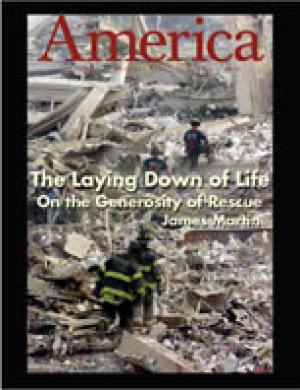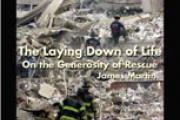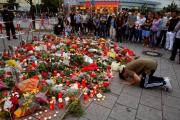There are times when even an atheist must ask, Who or what can save us from our plight? Sometimes the great rages of the earth, the physical evils of earthquake and tidal wave prompt the question. More often, it is the appalling moral evil of the human heart. Who can save humanity from itself?Even t
From a high ridge in Nimule, Sudan, I looked across a quiet valley to the Nile Riverthe source of life for thousands who pull their living from its muddy waters. In a patch of yellow grass a few feet from where I stood lay the tarnished casings of spent artillery shells, fired only recently at plane
Two days after the terrorist attack on the World Trade Center, I made my way to one of the emergency trauma centers in Manhattan. It had been hastily set up in a cavernous sports facility called Chelsea Piers, on the Hudson River. I had been there earlier, on the evening of Sept. 11, still stunned f
The bridge over the St. Lawrence River in Canada hangs in the twilight, a connection to some different sense of time and space. It is the summer of 2000 and my last day in Montreal. I’ve been invited by a French Canadian friend to travel with him across the river. My plan is to visit Kahnawake
Where does terrorism come from and how far ought any government go to both defeat terrorists and protect citizens’ rights, not least their right to life?
In a recent article in America (Patient No More, 7/16), Kevin W. Wildes, S.J., our friend and colleague at Georgetown University, celebrated a requiem for the traditional, patient-centered ethic of medicine. In its place he proposed a new ethic of social contract, one oriented to societal need rathe
Sept. 11, 2001, will forever be etched in the consciousness of all living Americans, but assuredly in a unique way for New Yorkers and Washingtonians. In New York, a variant of the question, “Where were you when the lights went out?” is asked and pondered citywide. For me, the answer is




